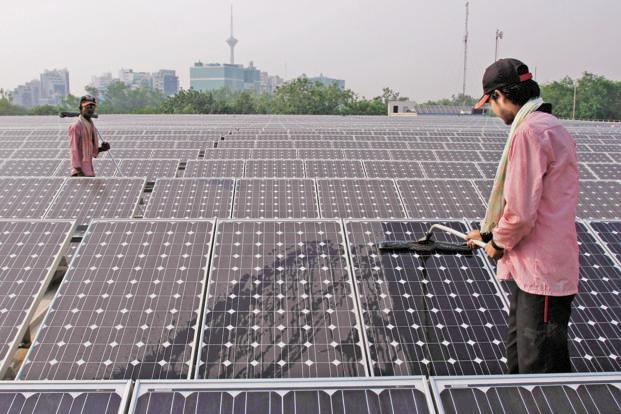- Kaduna Communities Record Two-year Uninterrupted Power Supply
The Federal Government on Tuesday announced that two communities in Kaduna State recently recorded two straight years of uninterrupted supply of electricity.
It said the Gnami and Pakau communities enjoyed uninterrupted power from the 90-kilowatt Solar PV off-grid system installed in the areas, as the villages were far from the reach of the national power grid.
The Permanent Secretary in the power arm of the Federal Ministry of Power, Works and Housing, Mr. Louis Edozien, said the feat was achieved through the renewable energy project of the ministry, which provides access to electricity for rural dwellers, using solar powered systems.
Edozien, who was represented by the ministry’s acting Director, Renewable Energy, Farauk Yabo, disclosed this when delegates from the Economic Community of West African States visited the two communities to mark the end of the regional training workshop on improvement of policy and regulatory framework for clean energy mini-grids.
The permanent secretary said the project was in line with the administration’s drive to provide electricity to rural communities that might not in the distant future have access to power supply because of their distance from the national grid.
In a statement from the ministry, Edozien explained that the 40KW solar PV mini-grid at Gnami village consisted of power generation and distribution systems, house installation systems, and street lights and metering systems, adding that it was currently supplying uninterrupted electricity to 100 households.
He stated that the 50KW solar PV renewable energy micro utility at the Pakau community was providing power to about 300 households.
According to Edozien, the REMU facility operates on a mobile electronic payment system with provision for at least 10 business and commercial customers.
Speaking on behalf of the communities, the village head of Gnami, Mr. Ibrahim Yerima, according to the statement, expressed gratitude to the Federal Government and assured the delegates that the facilities would be well protected and put into proper use.
In another development, the Transmission Company of Nigeria announced that it had restored electricity supply to Birinin Gwari and Yauri in Kaduna and Kebbi states, respectively.
It said power supply was restored in the areas at about 5:10pm on Monday, 11 days after the collapse of tower number 183.
In a statement signed by the General Manager, Public Affairs, Seun Olagunju, the TCN said that its 132kV transmission tower 183, between Tegina and Kontagora in Niger State, collapsed at about 7am on July 13, due to severe flash flood caused by heavy rainfall, which eroded the base of the tower.
It also stated that power supply to the Kontagora sub-station would be restored as soon as the repair on the station’s circuit breaker was completed.
The TCN stated that it had inaugurated a new 40MVA transformer at its 132/33kV transmission sub-station at Mayo-Belwa as part of efforts to improve power supply.

 News3 weeks ago
News3 weeks ago
 Business3 weeks ago
Business3 weeks ago
 Technology3 weeks ago
Technology3 weeks ago
 Investment3 weeks ago
Investment3 weeks ago
 Banking Sector3 weeks ago
Banking Sector3 weeks ago
 Banking Sector3 weeks ago
Banking Sector3 weeks ago
 Appointments3 weeks ago
Appointments3 weeks ago
 Investment3 weeks ago
Investment3 weeks ago





























